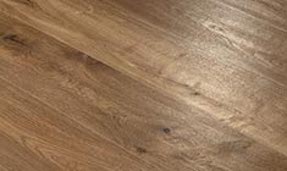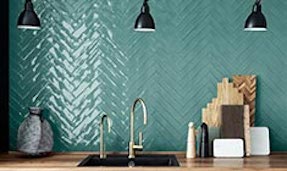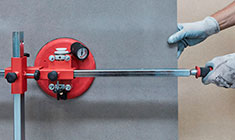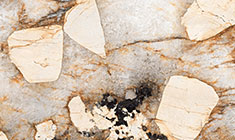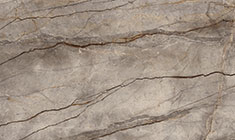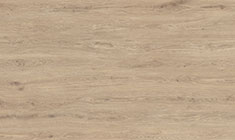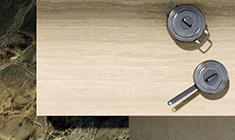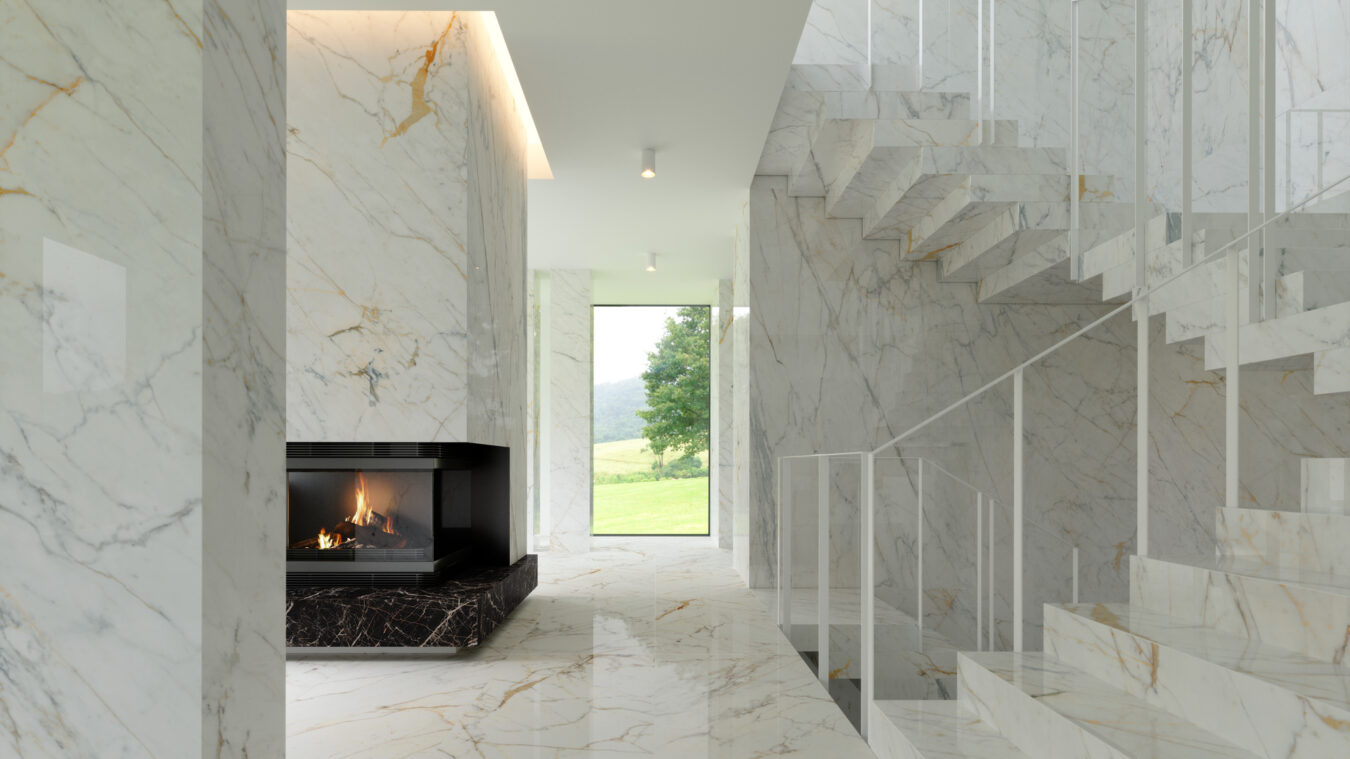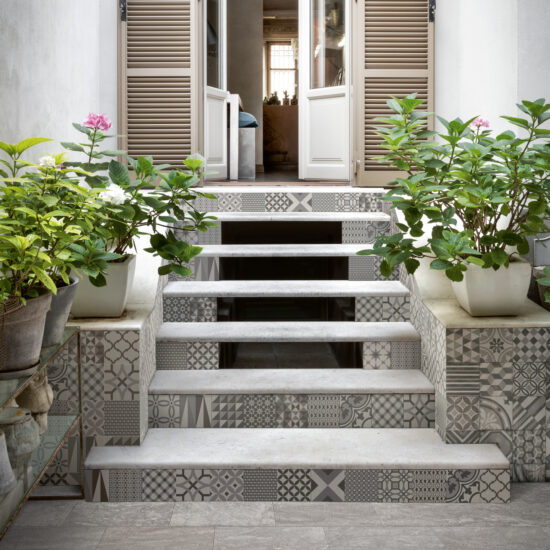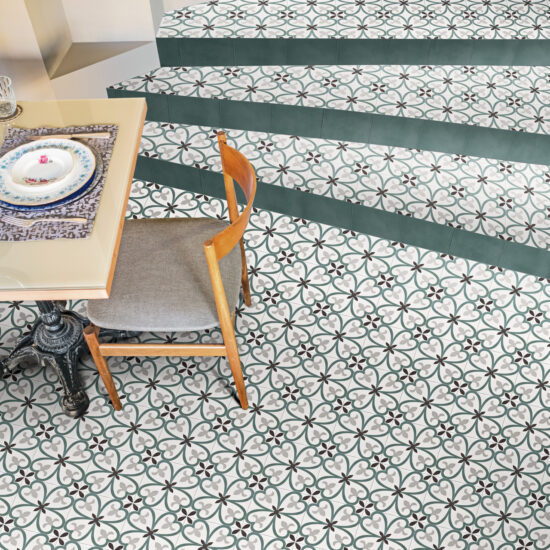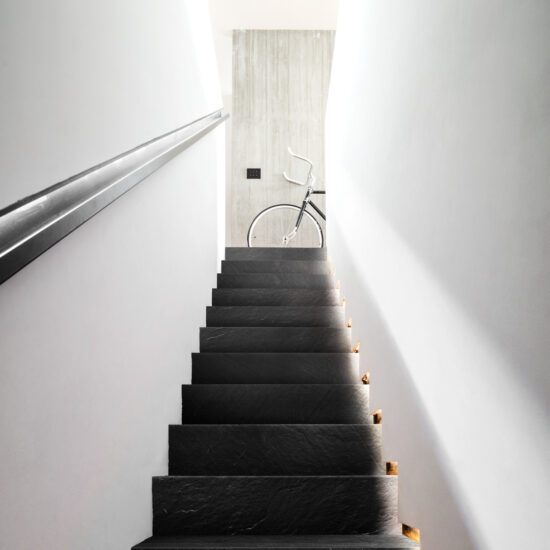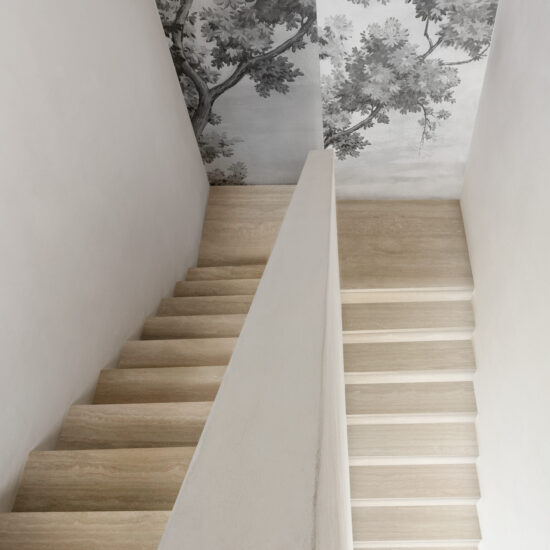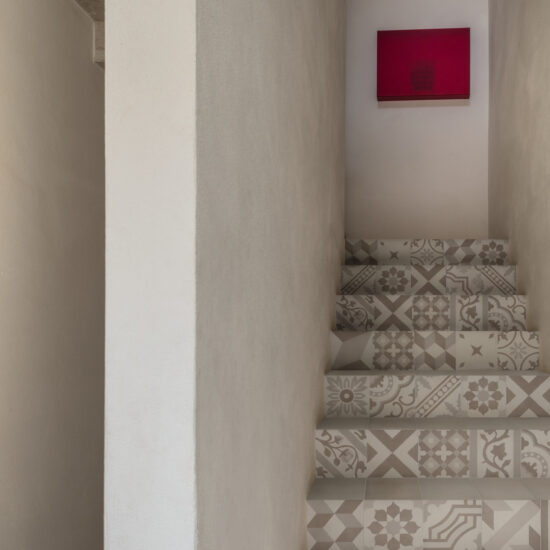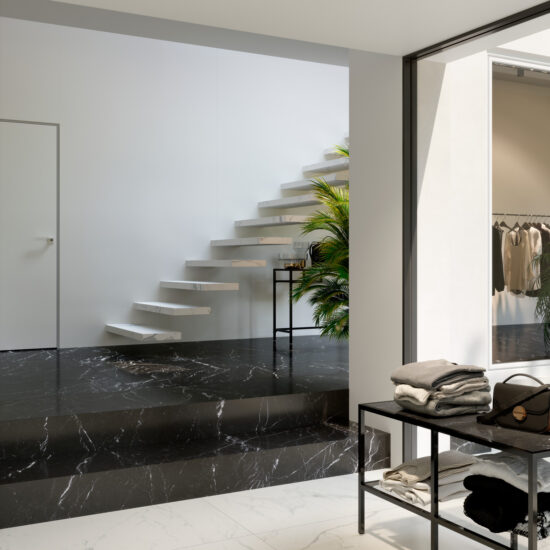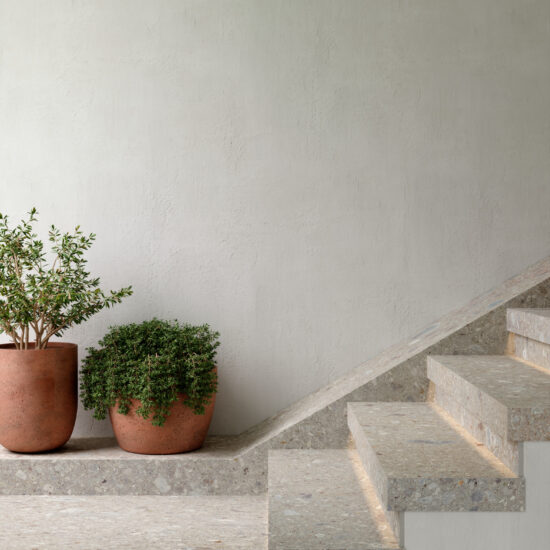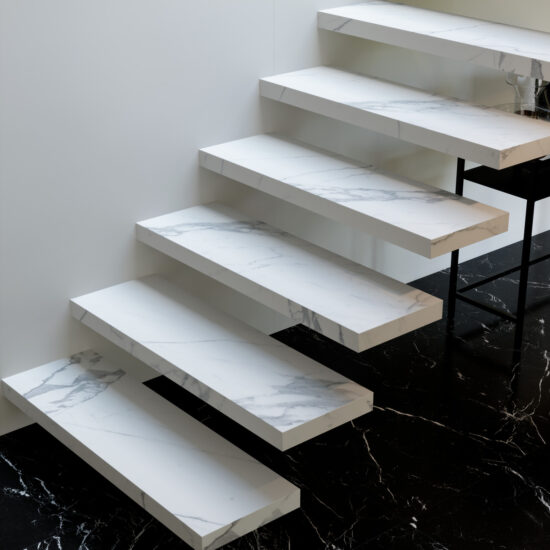This production process makes it uniquely hard, compact and durable and thus ideal for a large variety of applications.
Both indoor and outdoor locations can benefit from the use of porcelain stoneware, which offers finishes that perfectly imitate natural materials such as stone, marble and terracotta and provides infinite design potentials.
So stoneware is also a truly excellent choice for steps and stairs, the perfect blend of convenience and style.
So let’s take a look at the benefits this material offers for the construction of steps and stairs: whether it’s for the indoor staircase connecting the different floors of a home or outdoor steps that provide an elegant context to welcome guests, porcelain stoneware provides practical and aesthetic solutions to suit all needs.
Characteristics of porcelain stoneware for steps and stairs
Porcelain stoneware can transform steps and stairs into real design features, helping them to blend attractively into the rest of the location and creating stylistic continuity between the various spaces.
But which of this material’s characteristics make it particularly suitable for covering steps and stairs?
As well as the durability and strength already referred to, which enable it to withstand stresses without damage, another of porcelain stoneware’s main characteristics is its resistance to stains, wear and abrasion.
In both residential and public or commercial settings, stoneware is an effective, high-performing solution for heavily-used features like steps and stairs.
In these cases, safety is also fundamental: porcelain stoneware is available in variants with an anti-slip surface, specifically developed to prevent accidents and falls. These surfaces are produced using special treatments or by opting for naturally rougher finishes, which provide feet and shoes with a better grip.
Besides the material’s technical characteristics, it’s important to remember that the amazing variety of finishes and colours available means all aesthetic requirements can be met with ease. For example, if you wish to create warm, welcoming interiors, you can opt for a staircase in wood-effect porcelain stoneware.
For a more luxurious finish, on the other hand, we recommend marble-effect porcelain stoneware, which accurately reproduces the constant variation and gleam of the natural stone, selecting its most elegant vein patterns for a strikingly decorative surface.
Terracotta- and concrete-effect stoneware, in contrast, fits perfectly both into rustic design schemes and more modern settings or those with an industrial inspiration. The range of colours is no less wide, running from delicate and neutral tones to the brightest, brashest hues, perfect for unique, individual design.
All these effects are suitable for both indoor and outdoor locations, as is the stone effect, with its aesthetic inspired by stones traditionally used for architecture such as slate, quartzite and basal, which accurately imitates their colours, their finishes and the way they interact with light.
The benefits of a porcelain stoneware staircase
One of porcelain stoneware staircases’ most popular characteristics is their ability to transform their surroundings, enhancing every detail with a refined, versatile aesthetic.
Given the variety available, you’ll be able to create spaces of all kinds,, from modern to rustic and from classical to industrial. A staircase can be both a central decorative feature within a room and a discreet detail that blends attractively into its surroundings, placing the focus on other parts of the interior design.
Another benefit of choosing to clad steps and stairs with porcelain stoneware is its very convenient cleaning and care.
Usually, cleaning indoor and outdoor steps and stairs may involve a variety of difficulties. For example, although dust and debris often tend to build up on wooden staircases, cleaning porcelain stoneware will be easier due to the material’s non-porous surface. When it comes to outdoor steps, exposed to adverse weather, frost and atmospheric factors, porcelain stoneware is an excellent solution: it doesn’t fade due to exposure to UV radiation, doesn’t warp when temperatures change and doesn’t absorb water, so there’s no risk of cracking or splitting. It also withstands mould and bacteria, and stays intact, clean and safe in the long term.
Comparison between porcelain stoneware, marble and parquet for staircases
Compared to wood, porcelain stoneware offers multiple benefits when used to cover staircases. First and foremost, it’s very hard-wearing, while wood can easily suffer visible damage in daily use.
What’s more, porcelain stoneware doesn’t require any particular maintenance, while wood needs regular polishing or vanishing. Its resistance to stains and damp protects porcelain stoneware from the warping to which wood is prone.
Porcelain stoneware is also a preferable choice compared to marble from many points of view. Although it provides the same elegant, sophisticated effect in the rooms it is used to decorate, stoneware is immune to stains, which may permanently damage natural marble slabs. Chemicals used for cleaning and atmospheric factors do not cause deterioration of stoneware, which is not damaged by exposure to rain, snow or bright sunlight.
Last but not least, compared to traditional ceramic tiles, stoneware has greater mechanical and impact strength, making it ideal for use on steps and stairs, where a tough material is required. Its level of water absorption is also extremely low, a characteristic that makes porcelain stoneware step and stair tiles less liable to damage caused by damp and weather.
In the light of these comparisons, it’s clear that porcelain stoneware is particularly ideal for this application, both outdoors and indoors, and both in damp places and in heavily-used locations subject to daily wear and tear.
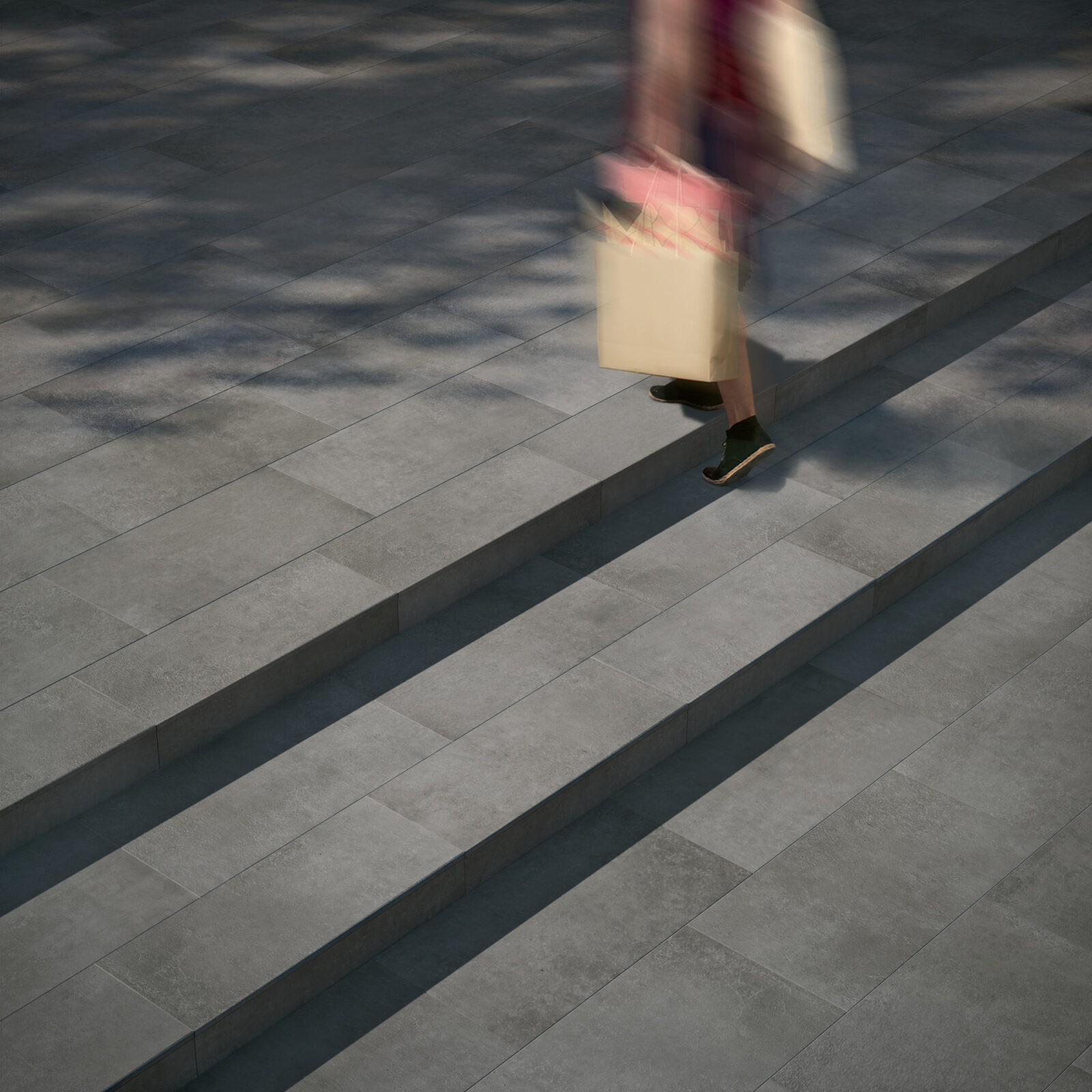
Tips for purchasing and installing porcelain stoneware step and stair tiles
A number of key factors must be considered when choosing the right step and stair tiles. First of all, the type of environment where the step and stair tiles will be installed must be assessed. Whether the area is indoors or outdoors will affect the type of finish and the anti-slip properties required.
Last but not least, consideration must be given to the style required, trying to imagine the intended final effect as clearly as possible.
To guarantee successful installation, a number of common errors must be avoided. The main ones involve poor preparation of the substrate: if it’s dirty or uneven, the special tiles used to cover steps and stairs (tread and riser tiles) may not adhere correctly, causing problems in the long term.
A lack of precision when cutting tiles to size, on the other hand, may cause unsightly gaps and even lead to structural unsoundness. To make sure the job is done to the highest standards, care must also be taken over the finishing touches: correct grouting of the joints prevents water seepage and ensures that the covering performs at its best.
So to conclude, to choose porcelain stoneware for covering indoor and outdoor steps and stairs is to invest in a material that really provides an impressive number of benefits: from technical characteristics to the scope for constructing bespoke solutions every time, the aesthetic potential of porcelain stoneware for these architectural features is truly versatile and functional.
Find out more on the Marazzi website and check out the wide range of products that can meet every stylistic aspiration with elegance and durability!

